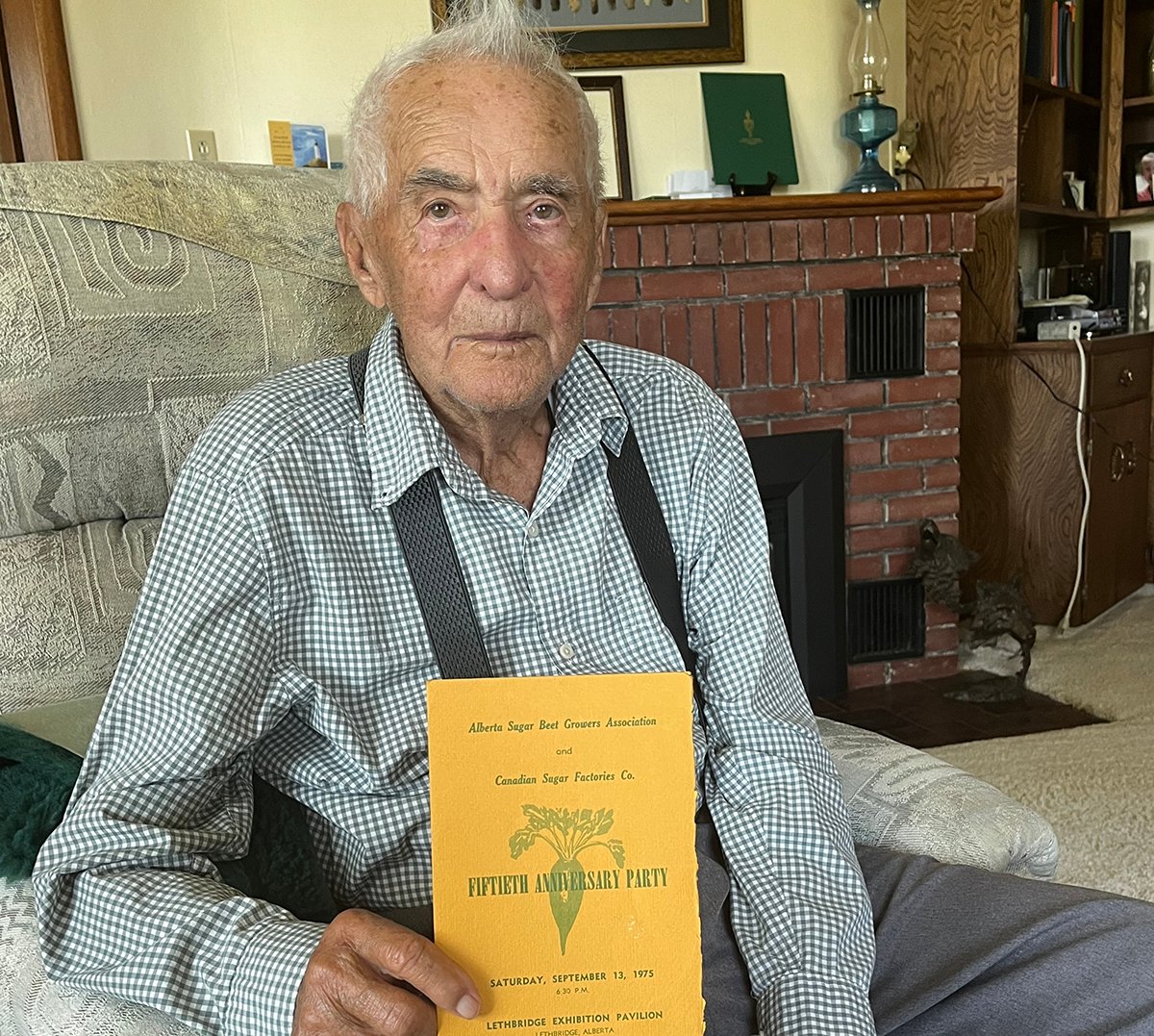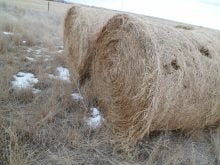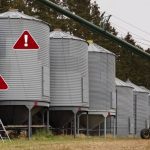A Saskatchewan farmer says he has lost confidence in Canada’s certified seed program.
This spring, Kent Smith bought what believed was certified seed from a licensed dealer. He conducted germination tests and discovered the seed fell short of certified seed standards.
Smith is suing the dealer for full remuneration and recently argued his case in front of a provincial court judge in Outlook, Sask.
In court, Roy Bailey of Bailey Bros. Seed Farm, the Milden, Sask., seed processor who sold the seed to Smith, admitted there was a problem with the seed lot.
Read Also

Rich life took him from sky to ground
World War II veteran Burns Wood shares some memories of his time on the Alberta Sugar Beet Growers board as the organization celebrates its 100th anniversary in 2025.
“We know we had a problem with germination.”
But he wanted Smith to accept the same remuneration the company provided to other farmers and grain companies who bought the durum seed from Bailey Bros.
Bailey said his firm sent a letter and a cheque for 22 percent of the value of the purchase to everybody who bought its No. 1 certified AC Avonlea durum.
“This is a terrible public relations thing for me,” Bailey told the judge.
“We will suffer the consequences of this for a number of years.”
Gordon Nesdoly, senior inspector at the Canadian Food Inspection Agency, was called by Smith to testify at the Aug. 24 trial. He said in a subsequent interview that the germination problem experienced by Bailey Bros. is uncomon but not unprecedented.
“It’s an annual thing. It’s an occurrence that happens rarely, but it does happen.”
The cause of the problem with Baily’s seed is unknown, but moisture and frost damage are possibilities.
Nesdoly said the CFIA has authority to take seed dealers to Federal Court or suspend their licences if they think fraud was involved, but that isn’t the case with Bailey Bros.
“We’re darn close to being sure that nothing fraudulent was done.”
During the trial, Smith told judge Robert Finley that last April 7, he bought 213.3 bushels of No. 1 certified AC Avonlea durum from Bailey Bros.
Smith was told the grain had a 92 percent germination rate. But he became suspicious when he noticed frost damaged durum while treating the seed with Raxil. He had his neighbor conduct germination tests on the seed and results were disappointing.
He then sent a sample of the seed to an accredited laboratory and the results showed the seed had a germination rate of 71 percent.
Smith informed the CFIA about the results. The federal government agency sent two inspectors to his farm southeast of Rosetown, Sask., April 25.
During the trial, Nesdoly told judge Finley that he took four samples of the AC Avonlea durum: one from Smith’s treated pile, one from Smith’s untreated leftovers, one from the Bailey Bros.’ bin where the seed had originated and one from the company’s reserve pile of AC Avonlea durum.
All four samples tested lower than the 80 percent germination rate required for durum seed to be labeled No. 1 certified. Results ranged from 65 percent to 72 percent, the court heard.
No-return policy
Smith told the judge he asked Bailey Bros. to take the seed back and give him a refund.
But the company refused, saying it had a no-return policy on seed sales and offered him 22 percent of the value of the seed.
Smith is seeking a full refund — $2,133.33 for the cost of the seed plus $557.75 for expenses including seed treatment and trucking costs. He didn’t plant any of the Bailey Bros. grain, but instead bought some of the same seed from another authorized dealer.
Baily argued in court that his no- return policy is necessary because farmers often change their minds about what they’re going to plant and he can’t accommodate all potential returns.
Finley delayed passing judgment, informing the parties they will be notified by mail.
“I’ll have to try to come to some resolution. I don’t know what that will be.”
After the trial, Smith said the incident has taught him a lesson.
“I’m going to be more careful when I buy my seed. I used to think the blue tag that comes with certified seed meant something, but apparently it doesn’t. It means nothing.”















